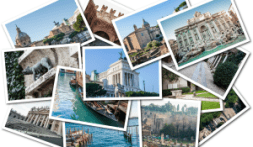
Explore Italy’s charm with our travel guide. From Rome’s history to Venice’s canals & Amalfi’s coast, discover culture, landscapes & cuisine tips!
Home • Destination • Italy Travel Guide

“The most beautiful in the world is, of course, the world itself.” - Wallace Stevens
Italy offers historical significance, artistic heritage, and cultural diversity. From ancient ruins to Renaissance treasures, the country’s rich history unfolds. Renowned museums house masterpieces by iconic artists like Michelangelo and Leonardo da Vinci. Breathtaking landscapes include the Amalfi Coast and the Italian Alps.
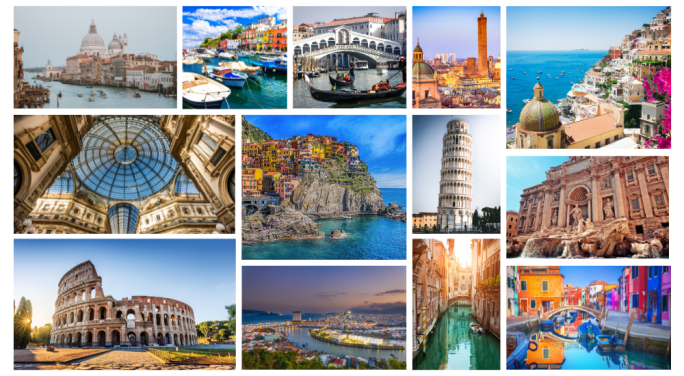
Culinary delights abound, from pizzas in Naples to seafood along the Amalfi Coast. Italian hospitality shines through as locals welcome visitors warmly. Italy is a hub of fashion and design, particularly in Milan. Attractions and activities are available year-round, promising an unforgettable journey.

Getting to Italy from Australia is as simple as booking a flight, with multiple airlines offering direct and one-stop flights. Flights can be taken from major Australian cities like Sydney, Melbourne, Brisbane and Perth Airports to both international airports in Italy.
Italy has over 25 International airports! We have listed 7 of the most popular below…
Located in Rome, Fiumicino Airport is Italy’s busiest airport and a major hub for international flights. It offers connections to numerous destinations in Europe, North America, Asia, and beyond.
Situated in Milan, Malpensa Airport is one of Italy’s largest and busiest airports, serving as a key gateway for international flights to and from northern Italy. It offers connections to destinations across Europe, Asia, Africa, and the Americas.
Located in Venice, Marco Polo Airport is one of the country’s main international gateways, providing connections to various destinations in Europe, the Middle East, and beyond. It serves as a primary entry point for travelers visiting the Veneto region and the Adriatic coast.
Serving the southern region of Italy, Naples Airport offers international flights to destinations across Europe and beyond. It is a convenient gateway for travelers visiting Naples, the Amalfi Coast, and the surrounding Campania region.
Located in Bologna, Marconi Airport serves as a major international hub for travelers visiting the Emilia-Romagna region and northern Italy. It offers connections to various destinations in Europe and beyond.
Situated in Catania, Sicily, Fontanarossa Airport is one of the busiest airports in southern Italy, offering international flights to destinations across Europe and North Africa. It serves as a primary entry point for travelers visiting Sicily and the surrounding areas.
Located in Palermo, Sicily, Falcone-Borsellino Airport offers international connections to various destinations in Europe and North Africa. It serves as a key gateway for travellers visiting Palermo and western Sicily.
For efficient local travel in Italy, utilize public transportation like trains and buses, opt for walking or biking in cities, consider ride-sharing services, and always carry a map or smartphone with GPS. Verify ticket validity and watch out for pickpockets in crowded areas.
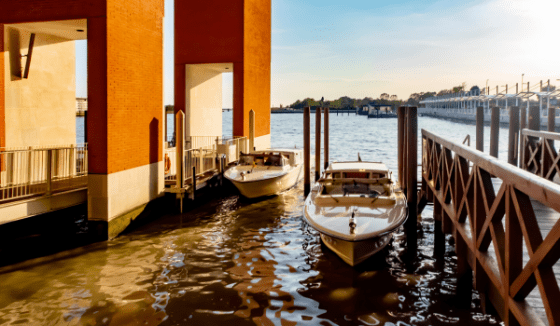
Italy offers a variety of transportation options. Whether traveling locally or domestically there are many ways to make your way around the European country. Here’s a list of the most common ways to get around Italy:
Whilst Italy is well-connected by train, domestic flights can save time for long distances or traveling between distant regions. Airlines like Alitalia, easyJet, and Ryanair offer domestic flights between major cities.
Domestic flight costs: Average one-way domestic flight ticket (e.g., between major cities): EUR 50-200
Italy has an extensive and efficient rail network operated by Trenitalia and Italo, connecting major cities and towns. High-speed trains like the Frecciarossa and Frecciargento offer fast connections between cities, while regional trains provide access to smaller towns and villages.
Train costs: Average regional train ticket: EUR 10-20, High-speed train ticket (e.g., between major cities): EUR 40-100, Eurail pass for tourists: EUR 100-500+
Buses are another popular mode of transportation in Italy, offering connections to destinations not served by trains. Companies like FlixBus and Busitalia operate long-distance and regional bus services, providing affordable options for travel within Italy.
Bus costs: Average long-distance bus ticket: EUR 10-30
Renting a car is a convenient option for exploring rural areas and accessing remote destinations. Note: Congestion can be an issue in major cities.
Car Rental (per day): Economy car: EUR 30-60
Taxis can usually be hailed on the street, found at designated taxi stands, or booked through taxi apps. In some cities, it’s common to find licensed taxi cooperatives that offer telephone booking services.
Taxi: Initial tariff: EUR 3-5
Ride-sharing services, such as Uber, operate in several cities across Italy. Ride-sharing services are available in major cities like Rome, Milan, Florence, Naples, and Turin, as well as some smaller cities and towns. Availability may vary depending on the location and time of day.
Water taxis are primarily found in cities with extensive waterways, such as Venice, Naples, and parts of the Amalfi Coast.
Water Taxi Costs: Costs vary, in Venice, a typical water taxi ride from Marco Polo Airport to the city center can cost anywhere from €100 to €150. In Naples, shorter rides across the bay may be less expensive, while longer excursions to nearby islands could cost more.
Ferries a practical choice for travel between mainland Italy and destinations like Sicily, Sardinia, and the Amalfi Coast. Companies like Tirrenia, Grimaldi Lines, and Blu Navy operate ferry services nationwide.
Ferry costs: Average ferry ticket for short routes (e.g., between mainland Italy and nearby islands): EUR 20-50
Italy’s scenic landscapes and historic cities make cycling an enjoyable way to explore the country. Many cities have bike rental services and dedicated cycling paths, while rural areas offer picturesque cycling routes through vineyards, countryside, and along coastal roads.
Bicycle Rental (per day): City bike: EUR 10-20

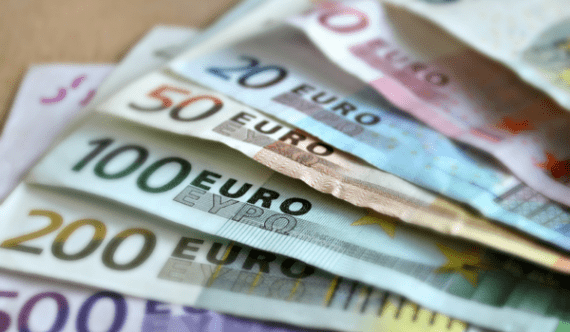
The currency used in Italy is the Euro (€), abbreviated as EUR.
Italy adopted the Euro as its official currency on January 1, 2002, replacing the Italian Lira (ITL). This transition was part of the Eurozone’s monetary union, which currently includes 19 of the 27 European Union (EU) member states.
Euros are widely accepted in Italy for cash transactions. Major credit and debit cards, such as Visa, Mastercard, and American Express, are also commonly accepted at hotels, restaurants, shops, and tourist attractions. However, it’s always advisable to carry some cash for smaller purchases and transactions in remote areas.
ATMs (Automated Teller Machines) are widely available throughout Italy, allowing travelers to withdraw Euros using their debit or credit cards. Be aware that some ATMs may charge fees for foreign card transactions, so check with your bank beforehand.

The official language of Italy is Italian (Italiano), which is spoken by the vast majority of the population. However, there are also several regional languages and dialects spoken throughout the country, reflecting Italy’s rich linguistic diversity. Some of the main regional languages and dialects spoken in Italy include:
Italian, Sicilian, Neapolitan, Venetian, Lombard, Sardinian, Friulian, Emilian-Romagnol, Piedmontese and Calabrian.
English is widely understood and spoken in Italy, particularly in tourist areas, major cities, and among younger generations.

Whether browsing designer boutiques, exploring artisan workshops, or haggling at local markets, shopping in Italy is a sensory experience that celebrates the country’s rich cultural heritage and passion for style and craftsmanship.
Here is what to expect when shopping in Italy:
Luxury shopping in Italy is epitomized by iconic destinations like Milan's Quadrilatero della Moda, Rome's Via dei Condotti, Florence's Via de' Tornabuoni, and Venice's Calle Larga XXII Marzo, each offering exclusive boutiques and flagship stores from renowned fashion houses.
Italy's restaurant scene is diverse, offering traditional trattorias to Michelin-starred fine dining. Try Osteria Francescana (Modena) for avant-garde cuisine, La Pergola (Rome) for panoramic views, and Antica Osteria Cera (Venice) for Venetian classics. Sample regional specialties at spots like Il Duomo (Ragusa) and Le Calandre (Rubano).
Italy boasts several notable malls. Galleria Vittorio Emanuele II in Milan and La Rinascente offer luxury shopping experiences. Centro Commerciale Campania near Naples and Euroma2 in Rome provide diverse options. Fidenza Village and Serravalle Designer Outlet offer discounted designer brands. I Gigli in Florence is among Tuscany's largest malls.
Italy has convenience stores like Carrefour Express, Coop Voce, Pam Panorama, and Simply Market, offering groceries, snacks, and household items. They provide convenient options for travellers to pick up essentials while exploring the country.
Italy's markets offer a vibrant tapestry of flavours, colours, and aromas. From bustling food markets like Mercato di San Lorenzo in Florence and Mercato di Rialto in Venice to artisanal crafts markets in Rome's Campo de' Fiori, visitors can immerse themselves in the country's rich culinary and cultural traditions.
Italy is an amazing place with so much to see and do, you must be very excited to add famous and interesting locations to your list of places to explore!
Here are some highlights to add to your to-do list when planning your next vacation in Italy:
These highlights offer a glimpse into the rich history, culture, and natural beauty of Italy, providing unforgettable experiences for travelers from around the world.
Italy’s iconic cities offer rich history, culture, and beauty. Rome boasts ancient landmarks like the Colosseum and Vatican City and Venice enchants with canals and Gothic architecture. There is just so much to see and do!
Here’s a list of the most popular cities to visit when you’re on vacation in Italy:
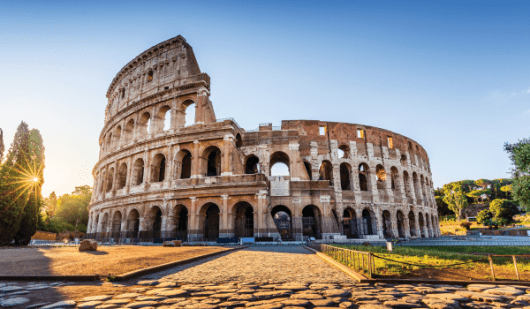
Rome, Italy’s capital, is a city of ancient wonders, with iconic landmarks like the Colosseum and Vatican City, vibrant piazzas, and a rich culinary scene steeped in history.
Rome has two major airports: Leonardo da Vinci-Fiumicino Airport (FCO) and Ciampino Airport (CIA), which serve domestic and international flights.
Distance: The distance from the Leonardo da Vinci-Fiumicino Airport to the city center is approximately 35 kilometers (22 miles)
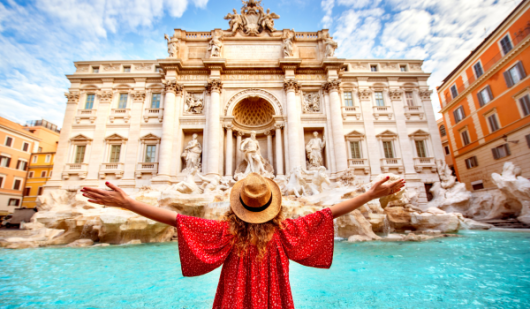
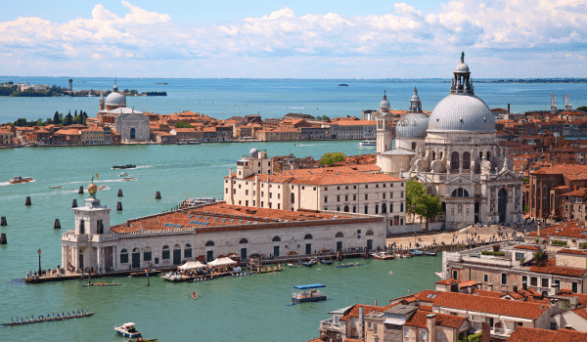
Venice, known as the “City of Canals,” is a unique and enchanting destination in northeastern Italy. Situated across a group of 118 small islands, Venice is renowned for its picturesque waterways, historic architecture, and rich cultural heritage. Visitors are captivated by its romantic ambience, winding streets, and iconic landmarks such as St. Mark’s Basilica, the Doge’s Palace, and the Rialto Bridge.
The nearest international airport to Venice is Venice Marco Polo Airport (VCE), located on the mainland approximately 8 kilometers (5 miles) north of the city center. From the airport, travelers can reach the city center by various means, including water taxis, buses, or the Alilaguna water shuttle, with travel times ranging from 20 to 45 minutes depending on the chosen mode of transportation.
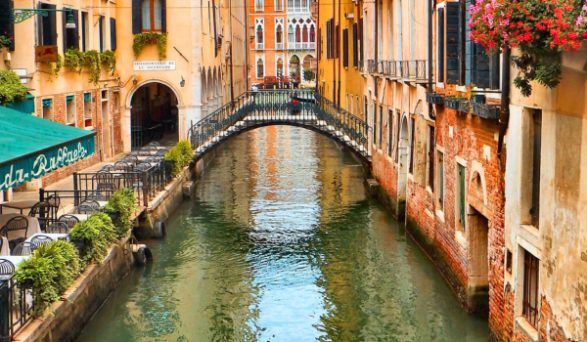
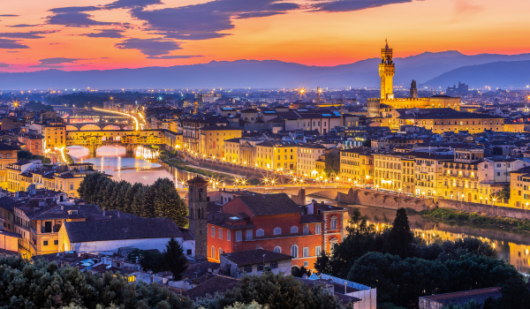
Florence, the capital of Italy’s Tuscany region, is renowned for its rich history, stunning architecture, and cultural heritage. Home to masterpieces of Renaissance art and architecture, Florence captivates visitors with its timeless beauty and artistic treasures. Landmarks such as the Florence Cathedral (Duomo), the Uffizi Gallery, and the Ponte Vecchio bridge showcase the city’s grandeur and significance in art history.
The nearest international airport to Florence is Amerigo Vespucci Airport (FLR), also known as Florence Airport, located approximately 8 kilometers (5 miles) northwest of the city center.
From the airport, travelers can easily reach the city center by taxi, airport shuttle bus, or tram, with travel times averaging around 15 to 20 minutes depending on traffic conditions.
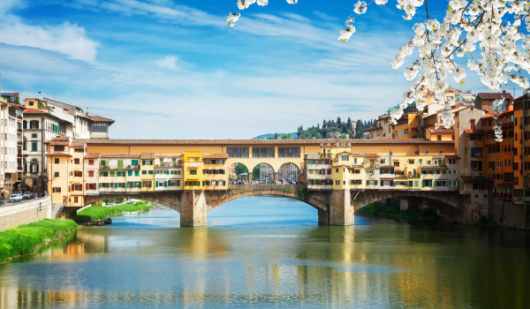
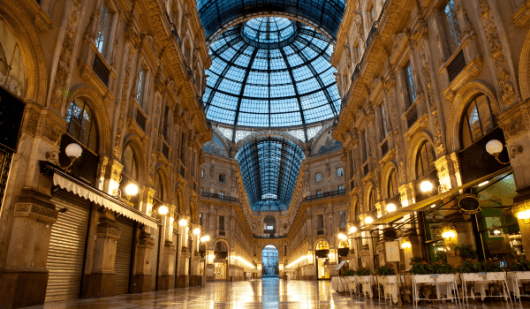
Milan, Italy’s fashion and design capital, is a bustling metropolis known for its cosmopolitan vibe, historic landmarks, and vibrant cultural scene. Home to iconic fashion houses, luxury boutiques, and world-class museums, Milan offers a unique blend of modernity and tradition.
The nearest international airport to Milan is Milan Malpensa Airport (MXP), located approximately 45 kilometers (28 miles) northwest of the city center.
From Malpensa Airport, travelers can reach Milan’s city center by various means of transportation, including express trains, shuttle buses, taxis, and rental cars. The travel time from Malpensa Airport to Milan’s city center typically ranges from 45 minutes to 1 hour, depending on traffic conditions and the chosen mode of transportation.
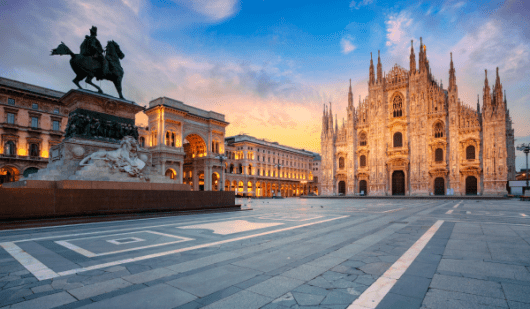
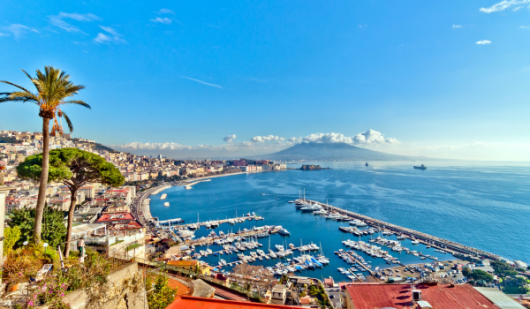
Naples, located in southern Italy, is a vibrant and historic city known for its rich cultural heritage, stunning coastline, and delicious cuisine. As one of the oldest continuously inhabited cities in the world, Naples boasts a wealth of historic landmarks, including the ancient ruins of Pompeii and Herculaneum, the majestic Royal Palace of Naples, and the imposing Castel Nuovo.
The nearest international airport to Naples is Naples International Airport (NAP), also known as Capodichino Airport, situated approximately 7 kilometers (4 miles) northeast of the city center.
From the airport, travelers can easily access Naples’ city center by various means of transportation, including taxis, airport shuttles, buses, and rental cars. The journey typically takes around 15 to 30 minutes, depending on traffic conditions and the chosen mode of transportation.
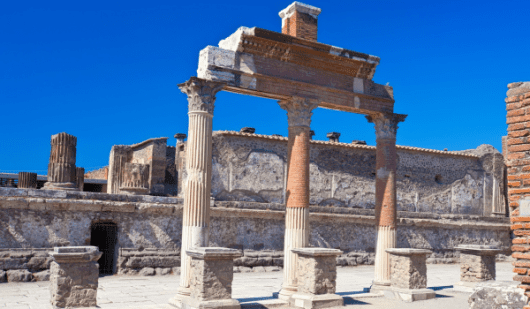
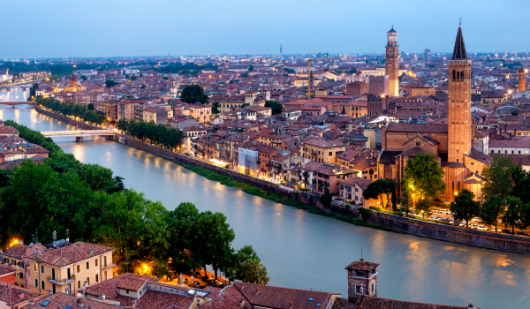
Verona, located in the Veneto region of northern Italy, is a charming city renowned for its romantic ambiance, rich history, and cultural heritage. Best known as the setting for William Shakespeare’s “Romeo and Juliet,” Verona boasts a wealth of historic landmarks, including well-preserved Roman ruins, elegant Renaissance palaces, and picturesque piazzas.
The nearest international airport to Verona is Verona Villafranca Airport (VRN), also known as Valerio Catullo Airport, approximately 10 kilometers (6 miles) southwest of the city center.
From Verona Airport, travelers can easily access the city center by various means of transportation, including taxis, airport shuttles, buses, and rental cars. The journey typically takes around 15 to 20 minutes, depending on traffic conditions and the chosen mode of transportation.
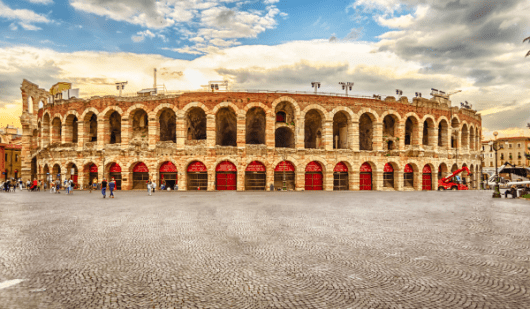

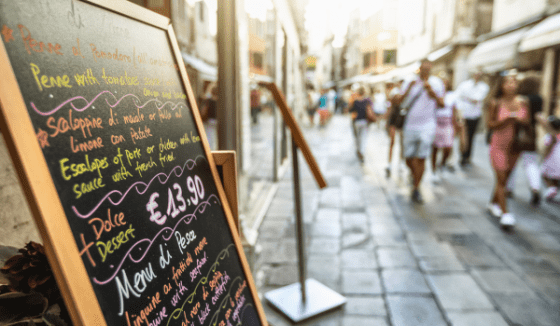
These are just a few of the must-try foods when visiting Italy, each representing the diverse and flavorful culinary traditions of the country. Be sure to explore local markets, trattorias, and gelaterias to discover even more delicious Italian delicacies during your visit.

We all know and love pasta but it's just different when you're in the motherland of Italian food. Try something different like Linguine alle Vongole or Cacio e Pepe.
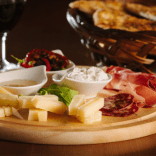
Bread and cured meats are often consumed as a quick snack or light meal. Locals might enjoy a simple sandwich with prosciutto, salami, or mortadella paired with a slice of fresh bread.

Salads featuring fresh, seasonal ingredients are commonly eaten as appetizers or alongside main courses. Classic options include Insalata Caprese (tomato, mozzarella, basil) and Insalata Mista (mixed greens).

In Venice, locals enjoy cicchetti, small bites or snacks often served in bars and taverns. These can include crostini topped with various spreads, fried seafood, or small sandwiches.
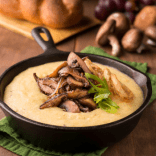
In northern Italy, polenta (boiled cornmeal) is a staple side dish often served with stews, braised meats, or sautéed mushrooms.

In coastal regions like Liguria, Sicily, and Puglia, locals frequently enjoy fresh seafood dishes such as spaghetti alle vongole (spaghetti with clams), fritto misto di mare (mixed fried seafood), and grilled fish.
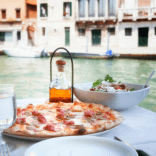
Italians frequently enjoy pasta dishes as part of their daily meals. This includes classics like spaghetti with tomato sauce, penne all'arrabbiata (spicy tomato sauce), and orecchiette with broccoli rabe.
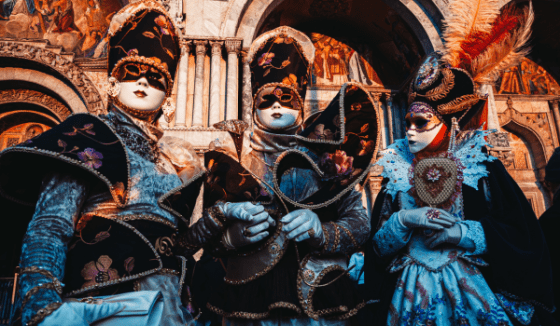
These cultural aspects and customs contribute to the unique charm and allure of Italy, making it a captivating destination for travelers seeking to immerse themselves in its rich tapestry of history, art, and traditions.
Italians typically greet each other with a handshake, followed by a kiss on the cheek (often two or three times) between friends and family members. It's customary to use formal titles when addressing elders or strangers as a sign of respect.
Family plays a central role in Italian culture, with strong ties among relatives and extended family members. Family gatherings are frequent and important occasions for sharing meals and celebrations.
Italian cuisine is celebrated worldwide for its emphasis on fresh, high-quality ingredients and regional specialties. Meals are a social affair, often enjoyed leisurely with family and friends. It's customary to linger over multiple courses and engage in lively conversation.
Italy boasts a wealth of artistic and architectural treasures, from ancient ruins and Renaissance masterpieces to Baroque churches and contemporary installations. Art galleries, museums, and historical sites are integral to Italian culture and draw visitors from around the globe..
Roman Catholicism has long been the dominant religion in Italy, and religious traditions and festivals are deeply ingrained in Italian culture. Important religious observances, such as Easter and Christmas, are marked with special Masses, processions, and rituals.
Italy is renowned for its contributions to the worlds of fashion and design. Italian designers and brands are revered for their craftsmanship, creativity, and innovation in fashion, furniture, automotive design, and beyond.
Italians love to celebrate, and festivals are an integral part of Italian culture. From historic reenactments and religious processions to food and wine festivals, there's always something to celebrate throughout the year.
Italy's cultural heritage is safeguarded and celebrated through UNESCO World Heritage sites, intangible cultural heritage practices, and local traditions passed down through generations.
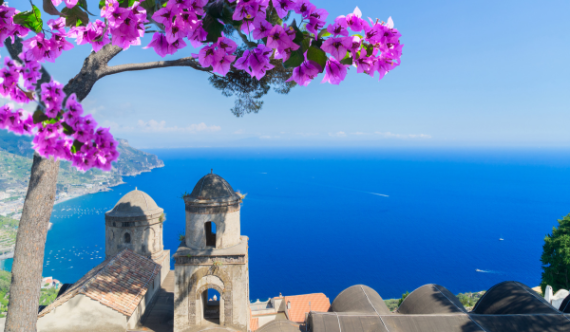
The weather in Italy varies throughout the year, with distinct seasons characterized by different weather patterns.
The best time to visit depends on personal preferences, with spring and autumn generally considered ideal for pleasant weather, fewer crowds, and a variety of outdoor activities.
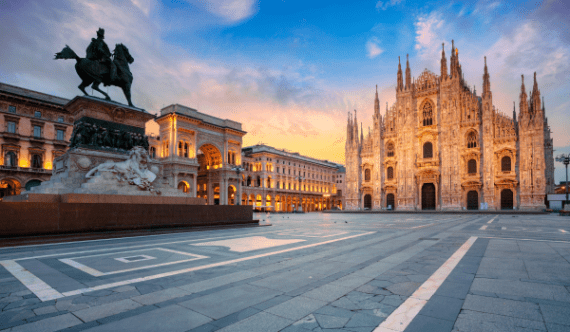
Spring in Italy generally spans from March to May. During this season, temperatures gradually rise, and the landscape comes to life with blooming flowers and lush vegetation. Spring weather can vary from mild and sunny to occasional rainfall, especially in the early months.
Summer in Italy typically lasts from June to August. This season is characterized by hot and sunny weather, with temperatures often reaching their peak in July and August. Coastal regions and cities can experience high humidity levels, while inland areas may be slightly cooler. Summer is a popular time for beach vacations, outdoor activities, and cultural events.
Autumn in Italy usually spans from September to November. During this season, temperatures gradually decrease, and the landscape transforms with vibrant autumn colors. Autumn weather is generally mild, with pleasant temperatures and occasional rainfall, particularly in October and November. It’s a beautiful time to explore Italy’s countryside, vineyards, and historic sites.
Winter in Italy typically lasts from December to February. This season varies depending on the region, with northern Italy experiencing colder temperatures and occasional snowfall, while southern Italy remains milder and sunnier. Ski resorts in the Italian Alps attract winter sports enthusiasts, while cities like Rome and Florence offer fewer crowds and festive holiday markets.
Entry requirements for Italy can vary depending on your nationality and the purpose of your visit. However, some general entry requirements:
Passport: You’ll need a valid passport. Make sure it’s not expiring soon, as many countries require your passport to be valid for at least six months beyond your intended stay.
Visa: Depending on your nationality, you may need a visa to enter Italy. Citizens of certain countries, such as those in the European Union and the Schengen Area, generally do not need a visa for short visits. However, citizens of other countries may need to obtain a visa in advance. Check with the Italian embassy or consulate in your country to determine if you need a visa.
Schengen Visa: If you’re planning to visit multiple Schengen Area countries, including Italy, you may need to apply for a Schengen Visa.
Duration of Stay: Make sure you’re aware of the maximum length of stay allowed on your visa or visa waiver. Overstaying your visa can result in fines, deportation, or future travel restrictions.
Proof of Funds: You may be asked to provide evidence of sufficient funds to cover your stay in Italy, including accommodation, meals, and any other expenses.
Return Ticket: Some visitors may be required to show proof of a return or onward ticket, indicating that they intend to leave Italy before their visa expires.
Health Insurance: While not always mandatory, it’s recommended to have travel health insurance that covers medical expenses in case of illness or injury during your stay in Italy.
Customs Declarations: Be prepared to declare any goods you are bringing into Italy, especially if they exceed duty-free limits.
For more information about visa go to https://italy.embassy.gov.au/rome/1.html
As of 1 June 2022, COVID-19 green certification is no longer required for entry into Italy from EU and non-EU countries.
In conclusion, Italy is a captivating destination that enchants visitors with its diverse landscapes, rich cultural heritage, and unparalleled charm. From the historic streets of Rome to the romantic canals of Venice and the scenic coastlines of the Amalfi Coast, each region offers a unique and memorable experience.
Whether savouring authentic Italian cuisine, admiring world-renowned art and architecture, or simply basking in the warmth of Italian hospitality, travelers are sure to be captivated by the beauty and allure of Italy. With its timeless appeal and endless treasures to discover, Italy remains a top destination for travelers seeking an unforgettable journey filled with history, culture, and culinary delights.
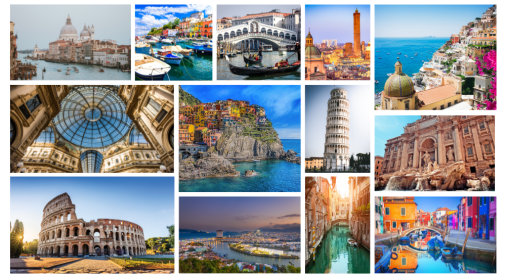
Please ensure you have a confirmed booking with the resort before paying for flights.

Explore Italy’s charm with our travel guide. From Rome’s history to Venice’s canals & Amalfi’s coast, discover culture, landscapes & cuisine tips!
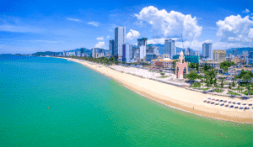
Searching for stunning beaches, delicious food, and Vietnamese charm? Discover our Nha Trang travel guide for your ultimate coastal escape.

Discover our Ubud Travel Guide: from attractions & transport to food & costs. Plan your Bali trip with our Ubud insights!

Beaches, Islands and Relaxation! Fiji is the place to be! Discover top destinations, cuisine, and local insights in our Fiji Travel Guide.